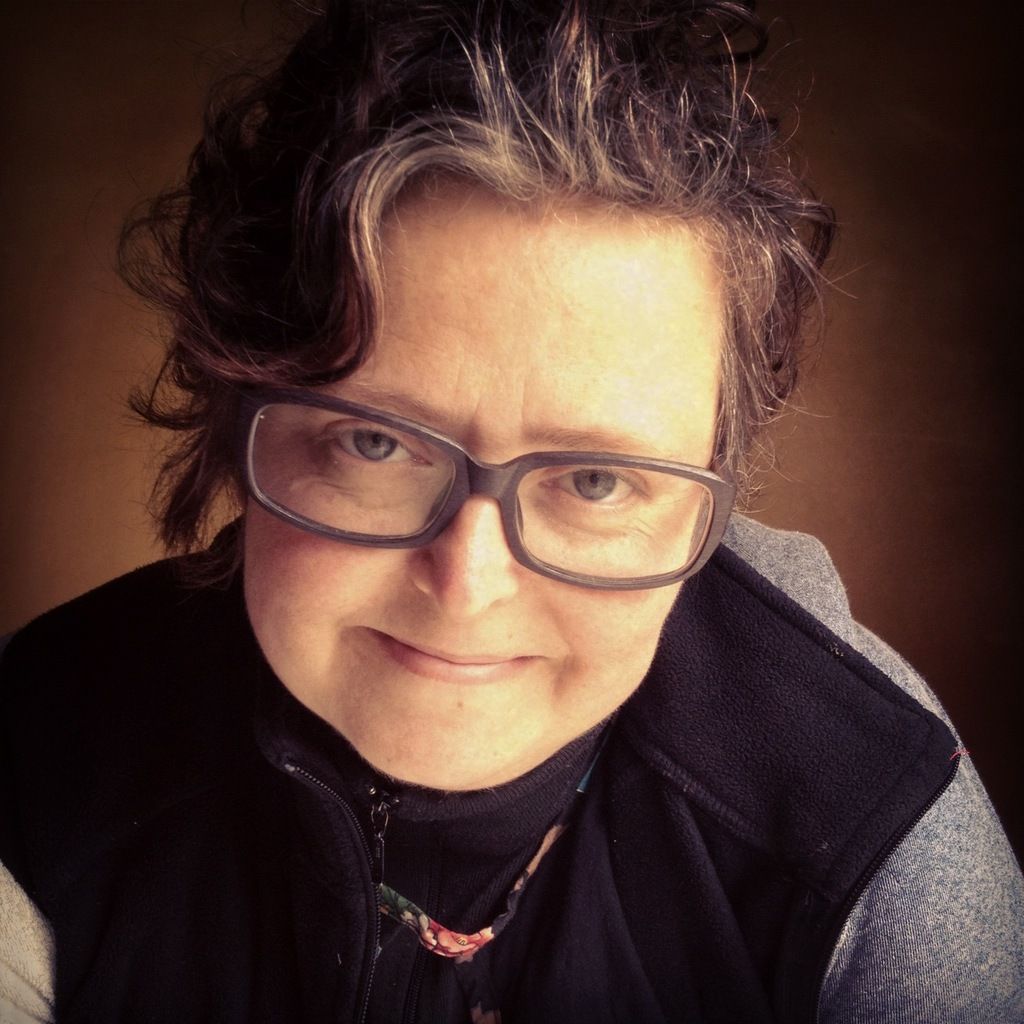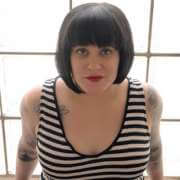How to Write Sex
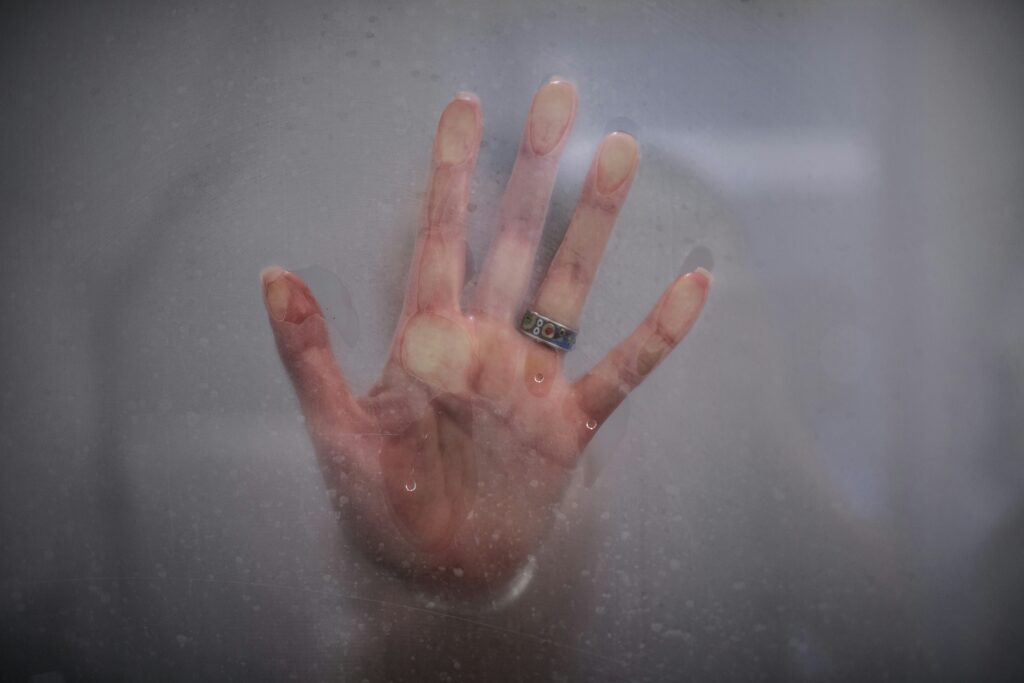
Have you always wanted to write a sex scene, but don’t know how to start?
Maybe the whole thing terrifies you, or you could just be terribly confused about the whole thing. We’ve done the dirty business of asking some of our favourite authors how they put together sexy, steamy, thrilling words about people having it off.
I come from The Simpsons school of thinking about sex: the lights go out, there’s a few giggles and “ooohs”, maybe some sort of roast-chicken-behind-the-bed joke, and then the credits role. 
Nothing makes me more uncomfortable with myself than the moment of putting pen to paper about sexy times. Will it be too naff, too cutesy, too creepy, too lovey or too awkward? Is it possible for something to be too sexy? Will the sex feel “right” for the character(s) at this time of the story?
So I spoke to some of my favourite authors about how they write sex. And throughout the interviews it’s become obvious that no one approaches a sex scene in the same way. These writers put their cards on the table about how they first began to write sex, and why it’s important to get it right.
Krissy Kneen is the award winning author of the memoir Affection, the novels Steeplechase and Triptych, and the Thomas Shapcott Award winning poetry collection Eating My Grandmother. She has written and directed broadcast documentaries for SBS and ABC television. Her latest novel is The Adventures of Holly White and the Incredible Sex Machine.
What have been your favourite sex scenes in stories and articles?
I love the sexuality in Ellen Van Neerven’s Heat and Light. I think she is one of the best sex writers working in Australia today. I constantly go back to Anais Nin and James Salter who are my absolute favourite sex writers but I have recently also discovered Lidia Yuknavitch and Tamara Faith Berger and both of these writers are so powerfully subversive and challenging. For sex as comedy I always turn to Nicholson Baker. He is smart and funny. I am also interested in J G Ballard and his work particularly in Crash. He has such strong female characters in his work.
What makes a bad sex scene for you?
Pacing is everything. I think, like real life, you have to know when you want a quick frantic grope in the dark and when you need a slow teasing build up. You need variety too, again like in the real world. If you do it the same way with the same players it is going to get boring really quickly.
How would you recommend our readers begin to write sex?
When you start writing sex you can be as experimental as you like. Be playful. Mix it up. By trial and error you will find a sexual voice you are comfortable with. Try playfully imagining sex between friends of yours who would never have sex together. Write about your family members, write about the local priest. Write about someone sitting at a cafe table near you. Write about the least ‘attractive’ person in the room. These unusual choices will free you from the need to reach for clichés. When you push yourself to find someone attractive who you would usually not be attracted to you open yourself up to new experiences and you will definitely be avoiding stereotypes. My advice is to have a secret journal that you will not show to anyone. This will add a level of frisson to your work. Keep it secret and allow yourself to shock yourself. It will be really fun and will lead to an opening up of your work.
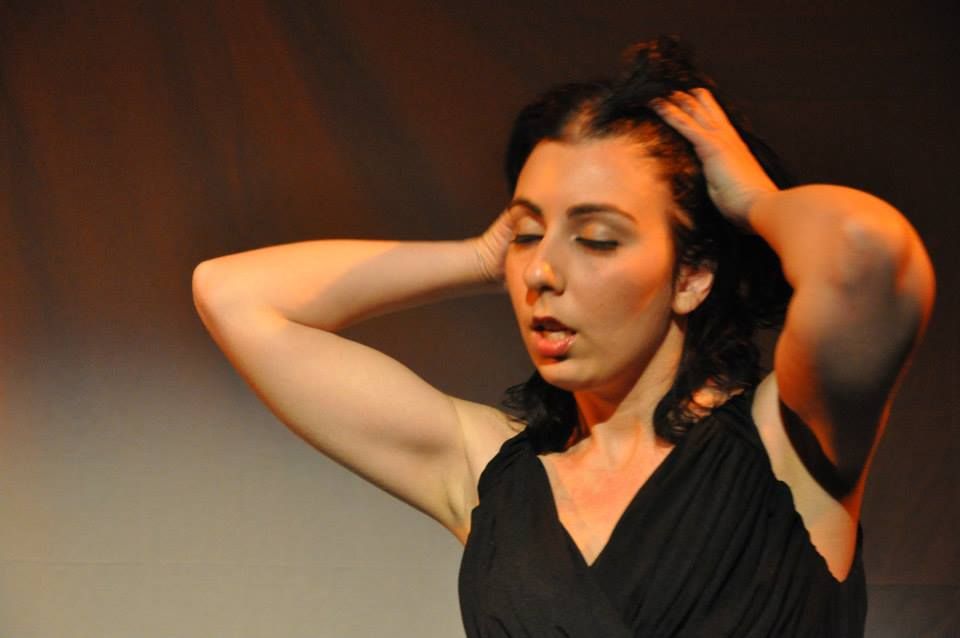
Koraly Dimitriadis is a freelance opinion writer and the author of the controversial bestselling poetry book, Love and F**k Poems, which has been translated into Greek and published in Europe. Her debut theatre show which incorporates her poems is Koraly : ‘I say the wrong things all the time and will premiere at La Mama Theatre in Nov-Dec 2016. www.koralydimitriadis.com
How did you feel the first time you started writing a sex scene? What were you trying to get across?
“The first sex scene I wrote was in my novel that I have been working on for 10 years. It was married at the time so the novel became a place where I could let my sexual imagination run wild, and it became my escape. It is during this process that I realised I loved writing very honest sex and breaking down the walls of sex in relation to my culture which forbade sex before marriage. My mentor, Christos Tsiolkas told me to write like nobody is ever going to read it. Because I was very shy that’s what I did.”
What are the main elements that make a sex scene powerful?
Honesty. 100% brutal honesty. What did I want to happen? How did it make me feel? What felt good? What hurt? Did I Iike that it hurt? Sex is not just the physical act of sex. Every sexual experience has an emotional aspect and that needs to be incorporated into the sex scene. How did the sex make you feel? And then being about to perform it, to bring it to life, because I am able to go back to that moment in time and feel what I felt at the time, even five years later. The reason I do this is because when I perform my poetry I want my audience to feel what I felt at the time.
How would you recommend our readers begin to write sex?
Think about your own sexual experiences and sift for seeds, experiences that moved you, defined you, shaped you. What was it about that experience that made it stand out?
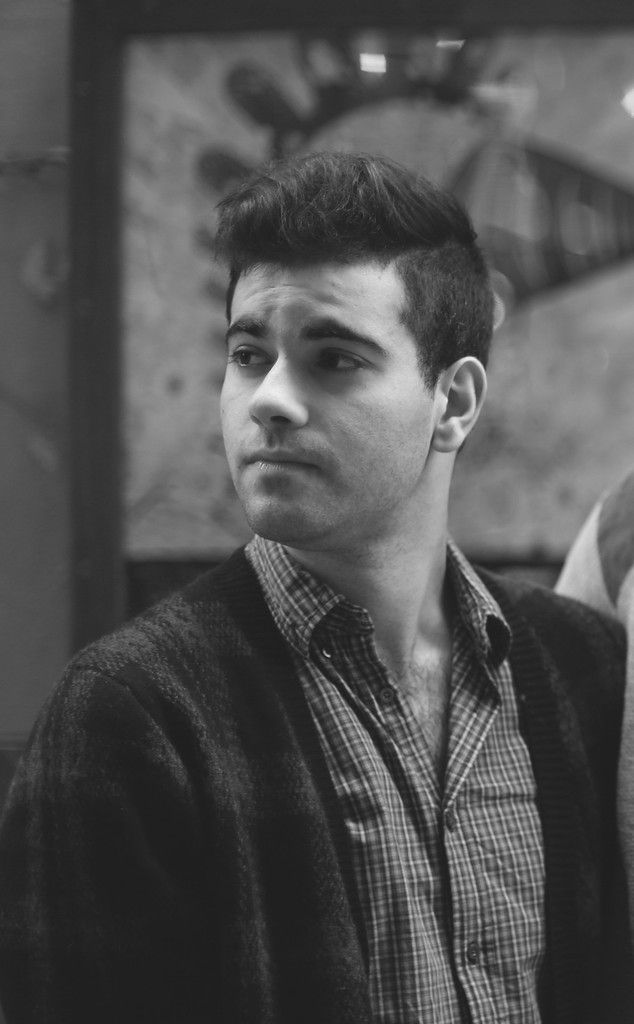
Anthony Nocera is a freelance writer, full-time homosexual and community broadcaster living in Adelaide, South Australia. He writes memoir and non-fiction. His writing and illustrations have been published in Voiceworks, Krass Journal and The Suburban Review. He is a contributor to CityMag and is the literature editor of Feud Magazine. He is the co-host and producer of The Range: Friday Sessions on Radio Adelaide. He is one of SA Writer’s Center’s Digital Writer’s in Residence in 2016.
Where there any barriers that you came across (internal or external) when you first to talk about sex?
I was worried what people would think, but that was only momentary. I sort of just thought ‘fuck it’. I’m pretty flippant about stuff like that, even though I take writing seriously I don’t take myself very seriously. I’ve always thought sex was hilarious and I’ve always liked writing jokes.
What are the main elements that make sex a powerful topic?
Sex is powerful because it’s something we all do or have experience with in some respect. It (quite literally) connects/ unites us. It’s a near universal human experience. Sex is us at our most raw and needy and vulnerable. There’s so much scope with sex. What attracts me to writing about it is my interest in how people communicate and sex is the ultimate form of communication.
How would you recommend our readers begin to write sex?
This is tough because sex can mean a lot of different things to a lot of different people (good and bad). So I can really only say what I did the first time I wrote about it which was to write about an experience that I’d had. Then re-read it and remove every section that made it feel sexy or like I was any good at it/ or better at it than I was.
But if I had to give broad advice I would say to honour your experience with sex. Don’t try and make it something it wasn’t. If you’ve written something that you’re not comfortable sharing yet, don’t do it. Don’t pressure yourself into sharing something for the sake of getting published/ exposure. Write it the way you want to and publish it in a place that’s going to respect it and you.

Mel Campbell is professionally curious about popular culture. The Hot Guy is her debut novel: a romantic comedy co-authored with fellow film critic Anthony Morris, and forthcoming through Echo Publishing in June 2017.
You mentioned an interesting stint co-writing sex scenes with a male author. How did that change the process? What were the points of difference between you?
Our writing practice is to work collaboratively in the same room, dictating dialogue and description out loud and negotiating edits as we go. I’m the one who fusses over phrasing and narrative logic, while Anthony my co-author prefers to get a basic draft version down first and then refine it later. He’s always teasing me for my fancy ‘literary’ language. Usually we work well together, because I’m the details guy and he’s the forward-momentum guy. But this just feels embarrassingly intimate when you’re writing about sex. I mean, try to imagine actually having sex while someone’s staring at you and offering suggestions!
Where there any barriers that you came across (internal or external) when you first began writing sexy scenes?
We turn a lot of our conversation into jokes in the novel, which works because it’s a comedy. But then it was really difficult for us to shift the tone for a scene that’s meant to have serious emotional heft.
Do you think writers have a duty to portray sex in a certain way?
They have a duty to normalise enthusiastic consent, to treat all characters as subjects acting rather than objects being acted upon, and to avoid ‘rape as character development’.
Angela Savage is an Australian author and winner of the Victorian Premier’s Unpublished Manuscript Award in 2004 for Behind the Night Bazaar which was published by Text Publishing in 2006. Behind the Night Bazaar was shortlisted for the 2007 Ned Kelly Award for Best First Fiction. Her second novel The Half-Child was shortlisted for the 2011 Ned Kelly Award for Best Fiction. In 2011 she won the Scarlet Stiletto prize for Australian women’s short crime fiction. Her third novel, The Dying Beach, was shortlisted for the 2014 Ned Kelly Award for Best Fiction. Christos Tsiolkas dedicated his fifth novel, Barracuda, to Angela.
What were you trying to get across the first time you wrote your first sex scene, did you feel like you achieved it?
Having worked in sexual health and HIV for years prior to writing my first novel, I set myself the goal of writing a sexy ‘safe sex’ scene in my first novel. I do feel like I achieved it — for which I can thank a generous Melbourne sex worker who explained (not demonstrated!) the art of using his mouth to put a condom on a client.
What have been your favourite sex scenes in stories and articles?
I loved Honey Brown’s erotic short story collection, ‘Six Degrees’, for its sex scenes, especially the ‘Two Women’ story. Anna George also wrote an amazing sex scene involving female ejaculation in her novel, ‘What Came Before’ (no pun intended!).
What are the main elements that make a sex scene powerful?
For me, a good sex scene combines convincing physical description with sensory detail and emotional engagement. I want to be inside the characters’ heads, beds and bodies.
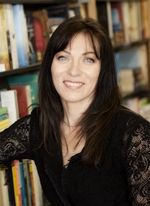
Honey Brown is an Australian novelist. Her first novel, Red Queen, was published by Penguin in 2008 and won the Aurealis Award for best horror novel in 2009. She was longlisted for the Miles Franklin Award in 2011 for The Good Daughter, and she won the Davitt Award in 2014 for Dark Horse.
You mentioned that sex and sex scenes are an important part of characterisation and narrative for you. What is your process as you develop these elements?
When shaping a character I’ve always considered their sexuality to be integral. They’re not fleshed out or real to me until I’ve discovered that element to them. Even if they’re a-sexual, that’s still an important aspect.
Starting each new book, I’m keen to get to a sex scene because it presents a wonderful opportunity to give characters complexity and depth, it’s a quick way to find out if they’ve got a dark side, or a vulnerable side, what sort of person they are morally – whether they’re cheaters or if they’re loyal. It’s also a great way to get narrative underway or to introduce story twists and unexpected plot points. Sex scenes are pretty boring if all they’re about is a character’s enjoyment. Being a thriller writer, I’m more interested in pushing boundaries and testing my characters.
Where there any barriers that you came across (internal or external) when you first began writing sexy scenes?
Because the story is made up, writers rely on real emotions and emotional truths to bring reality to a tale. That kind of raw truth is perhaps harder when it comes to sex; we worry about giving too much of ourselves away, or being ridiculed … I think readers love honest and insightful sex, they appreciate boldness and complexity, and they don’t mind being shocked or challenged.
How would you recommend our readers begin to write sex?
Ground the scene by describing the surroundings and time of day and some key details – the crunch of gravel, the smell of rain, the chill of a closed up room. Those sorts of things place the reader there and also give the writer something to work off, so instead of being stuck just describing sex, you can work off the space and create a more memorable scene.
Margo Lanagan is an internationally acclaimed writer of novels and short stories. She has won four World Fantasy Awards for her short stories and for her novels Tender Morsels and Sea Hearts. Her work has also been shortlisted in the Hugo and Nebula awards and longlisted in the International IMPAC Dublin Literary Award and for the Carnegie Medal.
What were you trying to get across the first time you wrote your first sex scene, did you feel like you achieved it?
It was a scene in The Best Thing, my YA novel of 1995, where the two characters were having getting-back-together sex after a time of being apart. I wanted to show the power of the sexual attraction between them, that their sex was good for both of them and that their relationship was equitable in the bedroom. I wanted it to be clear what was going on physically, without the descriptions being graphic to the point of icky. I wanted it to be hot! But also romantic too, and very much about these two particular characters.
I’ve just gone back and re-read it and yes, I think it still does the job I set out to do. Here’s how it goes after he undresses her:
Finally he pushes me down on the bed, the sun in my eyes, and lays himself on top of me. He drags a blanket over us, kicking off his shoes at the same time, and quickly works his jeans off. “Open ya eyes,” he whispers, and he’s there watching as he slides into me. I feel very, very tight.
Then there’s a pause. Every tiny sensation is brand new and fiercely familiar at the same time, shocking me with recognition and surprise. It’s been weeks! How did I last? How did I stand it?
“I’m scared to move,” he says, laughing a bit.
“Why, will you lose it?”
He nods. I listen to our breathing, watch his beautiful face. He shakes his head, shifts his body minuscule-ly, bites his lip. “Well, this is fuckin’ great, isn’t it?” he mutters.
I can’t stop grinning. “Yes, it is,” I sputter. I link my ankles behind him. “Ah,” he warns, closing his eyes. He bares his teeth, I move again, and he comes, giving me a little soft shaky kiss. Present but not present.
And then I do, the shivers going right up to the top of my head and out through my toes as he keeps the kiss going. It’s one of the strongest I’ve ever had.
And he knows it, of course. He’s staring into my face when I open my eyes, the sun in his hair, reflections of my sunlit face in his eyes. “Y’okay?” he says in a half-whisper.
I nod and he starts kissing and kissing me.
What makes a bad sex scene for you?
Pretension. Coyness. Over-earnestness. Visible authorial nervousness. Poorly-chosen similes and general language games that don’t match the surrounding story. Awkward timing—with sex scenes it’s particularly crucial to control the flow of the action so that every stage takes a realistic amount of time. Using names for the body parts that your POV character wouldn’t use. People having copious, super-clever dialogue as they fuck. Ill-considered representations of noises (vocal and other). High-flown philosophical digressions or very laboured/poetic discoursing on how incredibly meaningful this sex is. Sex that is improbably marvellous, including bodies that are fantastically buff and gorgeous. In heterosexual sex scenes, objectification of the woman that is clearly the author’s own rather than the character’s…Argh, there are so many ways to do it wrong.
Have you ever written a sex scene from the POV of another gender? How does this change the style for you?
I’ve written several sex scenes with male point-of-view characters, hetero- and homosexual. It’s not so much the gender as the character that determines the style—their confidence generally and sexually, what they’re gaining or losing by the sex, whether their expectations of this encounter are realistic or outrageous, what their greater arc is throughout the story (to triumph over or to sink beneath their own limitations). I wouldn’t say I’d consider writing from another gender or preference from my own to be an extra hurdle to be overcome. It’s all of a piece with creating any kind of character to consider how they would approach, or dream of, or fear sex.
Rafael S.W. is a recent graduate of creative writing and one of the founding members of Dead Poets’ Fight Club. He writes every single day and has been published in The Big Issue Fiction Edition, The Sleepers Almanac, and Award Winning Australian Writing. A regular contributor to Going Down Swinging online, he also competes in poetry slams and giant-sized chess games. http://rafaelsw.com
Where there any barriers that you came across (internal or external) when you first began writing sexy scenes?
I had huge amounts of trouble trying to talk about genitalia! Despite being able to swear at my Nan by age 4, I somehow found myself lacking the vocab to get across anything more intimate than a skatepark public-toilet quickie.
What makes a bad sex scene?
Exactly what makes bad sex: trying too hard, being clumsy, trying to fake a passion that isn’t there. If your sex scene isn’t making you hard/wet then it’s probably not working.
How would you recommend our readers begin to write sex?
Talk about it. In fact that’s just good advice for sex in general. Talk with your partner/friends/ siblings/internet whatever about experiences. Becoming comfortable with it is key to enjoying it. Practice alone in your bedroom before involving other people. Okay now I really am just talking about sex.
Marlee Jane Ward is a writer, reader and weirdo from Melbourne, Australia. Her short stories have been published in Interfictions, Terraform, Apex, The Sockdolager, Aurealis, Mad Scientist Journal, Slink Chunk Press and the In Your Face and Hear Me Roar anthologies. Her debut novella, Welcome To Orphancorp, won Seizure’s Viva La Novella 3 and is available in paperback and ebook formats. It won the 2016 Victorian Premiers Literary Award for Young Adult Fiction and was shortlisted for The NSW Premiers Award, an Aurealis Award, and the Norma K Hemming Award.
In your new book, Orphancorp, the narrator has a complex relationship with physical interaction – it’s a broad question, I realise, but how did you approach the question of sex and intimacy in the book?
In Orphancorp, the narrator uses sex as a way to seek intimacy, but without shame. Because her knowledge of sex is all independently and peer gleaned, there’s a distinct sense of there being nothing wrong with this method. But it differs from the usual depiction in that this is an empowering act for her. It’s not just casual and it’s not free of emotion, even though it is free of the bounds of monogamous relationships. It’s a way for the kids in the Orphancorp to find comfort and friendship in the physical bodies of others. It’s a bonding mechanism, and because there’s an emphasis on safety and consent, I feel like it’s a valid method. Someone once told me they made out with their friends because ‘how else would I show them I love them?’ I thought that was really beautiful and I wanted to explore that notion.
Do you think writers have a duty to portray sex in a certain way?
In young adult fiction, especially, I feel like writers should be discussing safer sex and consent, how to negotiate these factors because young people take so much on from the media they consume. I think writers should try to portray these things in a positive light: this is how you talk about safety, this is how you talk about consent, and showing that it doesn’t have to spoil the mood at all. I would have liked to read more realistic sex scenes as a young person – it would have helped me navigate the area more successfully.


